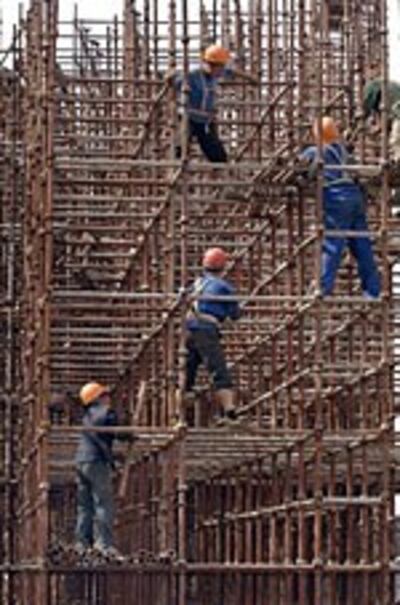
As China’s government struggles to meet its environment and energy efficiency targets, the country’s top legislature is considering a crackdown on the construction industry.
On June 24, according to China’s official Xinhua news service, members of the National People’s Congress (NPC) began to study a draft amendment to China’s energy conservation law.
The proposed amendment would apply energy conservation standards to new construction projects and require regular inspections for existing buildings and plants.
The draft also calls for gradual replacement of outdated central heating systems and control over indoor temperature settings.
Increasingly, China’s construction boom is seen as the culprit behind both energy waste and pollution, since it is tied closely to the country’s biggest consuming industries, including steel and cement.
The question now is whether efficiency standards will be enough to reduce consumption in the building industry, or whether China will have to take tougher measures to slow construction down.
A very small proportion of China’s buildings actually meet their country’s own building codes,
‘Huge waste of energy'
Experts voiced doubt that the government will try to stop China’s building boom.
Philip Andrews-Speed, a China energy expert at the University of Dundee in Edinburgh, Scotland, said China would continue to use more energy and materials if it keeps building at its current pace.
“A very small proportion of China’s buildings actually meet their country’s own building codes, so there’s a huge waste of energy through there,” Andrews-Speed said.
“The government is right to rather belatedly start insisting that all new buildings meet building codes. But in the short term, the issue is to somehow constrain the use of energy in construction. And unless you change the total way they construct buildings, then the only way to do that is to reduce the rate of construction.”
Trevor Houser, director of the energy practice at China Strategic Advisory, a New York-based consultancy, said China has opportunities to save energy at each step of the construction process.
“They can either slow construction, they can build buildings more energy-efficiently, or they can buy steel, aluminum, and cement from international markets instead of making them domestically. All three of those moves would reduce energy demand,” he said.
Houser said China’s government appears to have tried to slow the growth of industries like steel by cutting export tax rebates. This reduces the incentive to export, he said, but may also boost domestic building.
“By reducing exports, you increase the amount of domestic supply and drop prices,” Houser said.
“If steel and cement and other building materials are cheaper, then if I’m a construction company, when I’m building that office tower, when I’m building that highway, I don’t have to be concerned about how much steel I’m using, how much concrete I’m using.”
Houser said China’s government should now take steps to include conservation goals in each step of the construction process, from the use of raw materials, to production, to financing, and to building.
Original reporting by Michael Lelyveld. Edited for the Web by Richard Finney.
